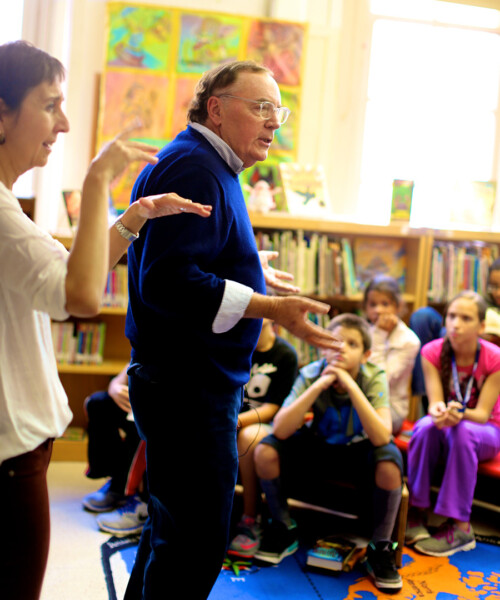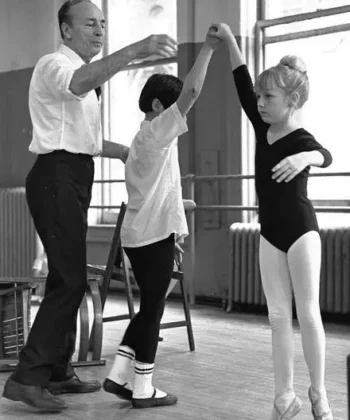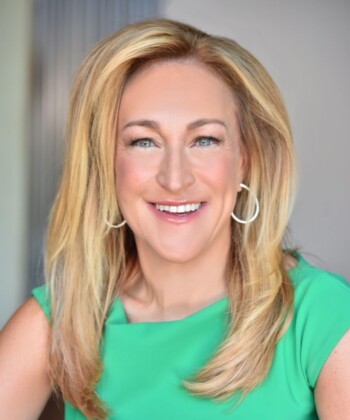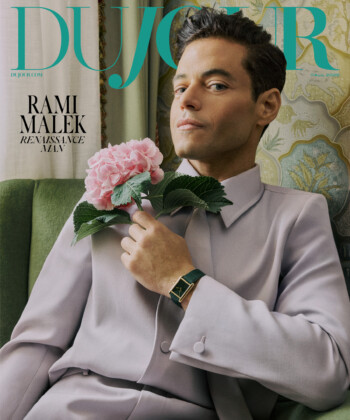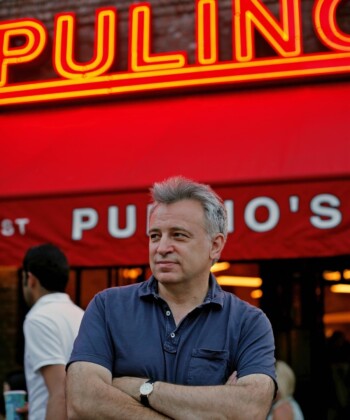For those who think of death by gun, knife or rope when they hear the name James Patterson, the announcement that the thriller titan is creating his own imprint of children’s books at Little, Brown may seem a little incongruous. But for the thousands of industry players milling about in the Javits Center last week for Book Expo America (BEA), the largest trade show of the year, “Jimmy Patterson” made perfect sense.
With more than 300 million novels sold worldwide, including 114 New York Times bestsellers, Patterson is a man who understands the market. And every market needs the next wave of customers.
On Sunday, concluding day of “BookCon” following BEA, Patterson sat down with DuJour for a one-on-one interview in a conference room tucked off a quiet carpeted hall, a meeting annex shared with other book-world A-listers like R.L. Stine. Patterson had just concluded a meeting with Michael Pietsch, CEO of Hachette Book Group, and Reagan Arthur, publisher of Little, Brown. Meanwhile, three levels below in the Javits Center, the panel “Vlogger to Author” drew thousands of excited teenage fans who waited in serpentine lines as if it were Six Flags Great Adventure to hear the YouTube sensations-turned-memoirists Joey Graceffa and iJustine.
Is there a place for Patterson, 68, in this cacophonous world? Most definitely. He’s no neophyte, having published more No. 1 New York Times-bestselling books for children than any other living author. He is the author of Middle School, I Funny, Maximum Ride and Witch & Wizard, among others.

James Patterson with kids at PS 347
“We want the kids who might think reading isn’t cool,” says Patterson, who, at a conference populated by authors loudly tooting their own horn, comes across as low key, down-to-earth and thoughtful. “When they finish a Jimmy book, we want them to say, ‘Please give me another one.’”
Market considerations aside, Patterson worries about literacy among the young—and does something about it. He’s launched the pro-reading not-for-profit website ReadKiddoRead; given hundreds of thousands of books to under-resourced schools; and donated more than $1 million to independent bookstores with children’s sections and $1.5 million to school libraries across the country. “Do you remember ‘It’s the economy, stupid’?” he asks. “Now we need ‘Education is the future of the economy, stupid.’ ”
His imprint, Jimmy Patterson, will release eight to twelve YA and middle grade books a year, beginning with Treasure Hunters: Secret of the Forbidden City on September 14. Some of the books will be written by Patterson and his co-authors; others will be acquired, with an emphasis on the type of “compulsive storytelling” found in series such as Hunger Games and Fifth Wave.
As for novels for grown-ups, they’re still going full tilt. Patterson published 16 new novels last year with the help of his co-authors. Next up this year is Truth or Die, written with Howard Roughan, which will hit stores June 22nd.
In past interviews, Patterson has credited his years as a J. Walter Thompson advertising executive with his prolific and highly organized output. When pressed for his fiction secret, he concedes it’s more than that. Imagination is critical. “And head and heart working together,” he theorizes. Authors must be able to generate real emotion, and then step back and analyze it. “Many creative people are not capable of that stepping back,” he says. “You can be tough on yourself without scarring yourself.
Unsolicited, Patterson says his weakness is lacking the patience to sharpen his prose. “The sentences could be better,” he says. “My best novel was my first one, I won the Edgar for it.”
The interview ends with Patterson needing to get ready for his own afternoon panel at BookCon: “Inside the Mystery Writers Studio,” with fellow bestsellers Brad Meltzer and Nelson DeMille, moderated by Michael Koryta. Last year, the talk of the industry was disputes with Amazon. Patterson was one of the most vocal advocates of traditional publishing, saying at the time, “Amazon could actually dedicate itself to saving books and literature in this country.”
This year, the overall mood is more harmonious, but Patterson still thinks publishing could benefit from “a couple of people who speak for the industry, the way Bill Gates does.”
And with that, one of the people who, if he wanted to, could quite possibly supply such a voice, heads off to his author panel.


























